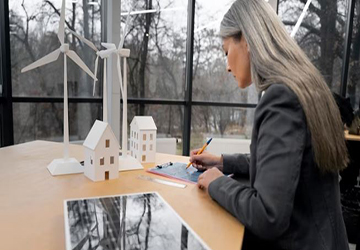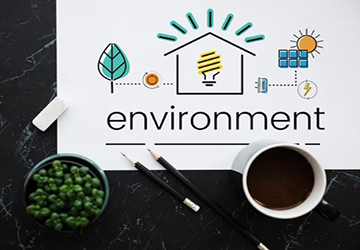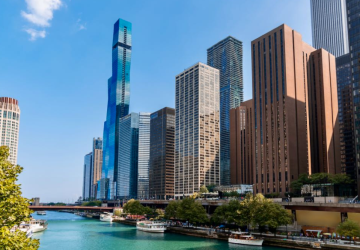Top 8 Environmental Protection Myths Debunked
There comes a time when a particular word becomes so popular you hear it everywhere. Now that specific word has a real meaning, or is it just a cliche for fashion? Either way, it creates an unknown impact on people's minds, and knowingly or unknowingly, we begin to act accordingly.
The word 'sustainable' is one of the words going through this same phase. You may hear about it from the media, friends, and family and wonder if you are a part of it. Also, you may have difficulty wrapping your head around it, but have you thought about what it is? And if it is just a myth? Or can you alter your lives according to it?
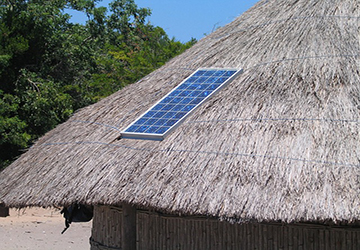
Let us begin to debunk environmental protection myths and see our beautiful options.
Sustainability: is it shared?
It is a misconception that nobody knows what sustainability is. If you ask a teacher, you will get 'development that meets the needs of the present without compromising the ability of future generations to meet their own needs as a quick response. Or 'Don't take what your share is' is also a standard definition.
Moreover, people think that sustainability applies to industries only. The more they save and give less waste, the more they are helping the environment. Also, it does not apply to individuals.
Although the entire truth is the opposite.
We all know what sustainability is, and somehow, we work accordingly only. Additionally, sustainability starts when an individual strives to change habits and become conscious of reducing waste, conserving energy, and supporting sustainable products. Who knows, you only shop for organic and local products, which are giving profit to local farmers and reducing the cost of imports. It all starts when you set your mind to it.
Renewable energy resources are expensive.
Another myth is about renewable energy resources. People and companies at large think they are expensive and unreliable in terms of usage. However, in reality, significant technological advancements and supportive policies have reduced the cost of renewable policies over the last few decades.
Take PV technology, for instance. The prices of solar panels have decreased, making them affordable for all. According to the International Renewable Energy Agency, solar energy reduces electricity costs by 82%.
Similarly, onshore wind is now the most common and cheapest form of energy worldwide. And innovation in energy storage units has been enhanced, which is done during high winds, and it gives uninterrupted supply at all times.
Recycling is the only solution to waste management.
While recycling is a valuable waste management strategy, there are more optimal solutions to all problems. We need a holistic approach, which includes reusing items, composting, and reducing consumption.
We need to be mindful of selected products and go for minimal packaging. More layers of plastic or paper are unnecessary, and in some scenarios, fresh pick is best for health. This approach reduces waste leading to a better environment.
Moreover, composting allows organic material to break down actively, creating nutrient-rich soil, which is best for farming and personal gardening.
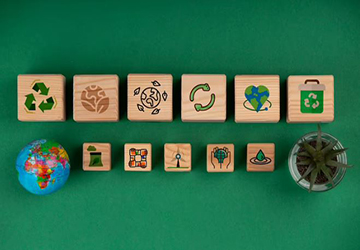
Environmental regulations hinder economic growth.
Contrary to the myth, environmental protection regulations create a lot of job opportunities around the world. It paves the way for new businesses, such as technology and innovation for new machines, the manufacturing industry gets a boost, installation needs people, maintenance creates permanent jobs, and research and development means more educated people to work in all fields.
Since it includes the ecosystem, there are jobs in the forestry sector, fisheries, and recycling technology. Moreover, the transport and sustainable industries get the upper hand, and locals also call to work.
This way, the economy rises, with higher economic growth in that field and area.
Natural resources are infinite.
While it is true that natural resources are infinite, there are desperate times when they can be depleted too. Natural resources include fossil fuels such as coal, oil, and gas, and they will finish one day, considering the amount we use these days. We need to shift towards renewable energy to have energy soon.
Similarly, rare minerals and metals are extracted through mining. However, the extraction becomes challenging, considering the mining is done daily. Also, it results in habitat destruction and water pollution, which will only be usable for a while if the practices continue.
Here you can use renewable energy and consume fewer minerals and metals, which is the only way to slow down mining. Also, if there is less demand, the production will become user-friendly.
Environmental problems only affect the distant future: not us.
Now this myth is dangerously misleading. The reality is that all environmental issues have an immediate effect on human health and biodiversity.
Take deforestation as an example. People may think that cutting trees for personal use will not affect the environment now, but we all are seeing changes in weather patterns recently. The desert is getting lots of rain, while winter months are now becoming summers. Similarly, flash floods have increased, leading to landslides and avalanches.
Going green is expensive.
Going green may cost some finance, but it is not expensive. Planting trees is not costly, and the trees will bear fruits when they grow full. You may sell the fruits or keep them for yourself.
Moreover, when you use renewable energy and become a cost-effective calculating person, you will save a lot of money.
Remember, sustainable practices may have operational costs, but collectively, they are economically viable.
In conclusion, it is essential to debunk the myths, and by understanding reality, we can make informed decisions and take practical actions toward a more sustainable future. Furthermore, you can only declare any practice obsolete if you complete the entire cycle of it. Even though the policies might change their course, keep up and hope.


